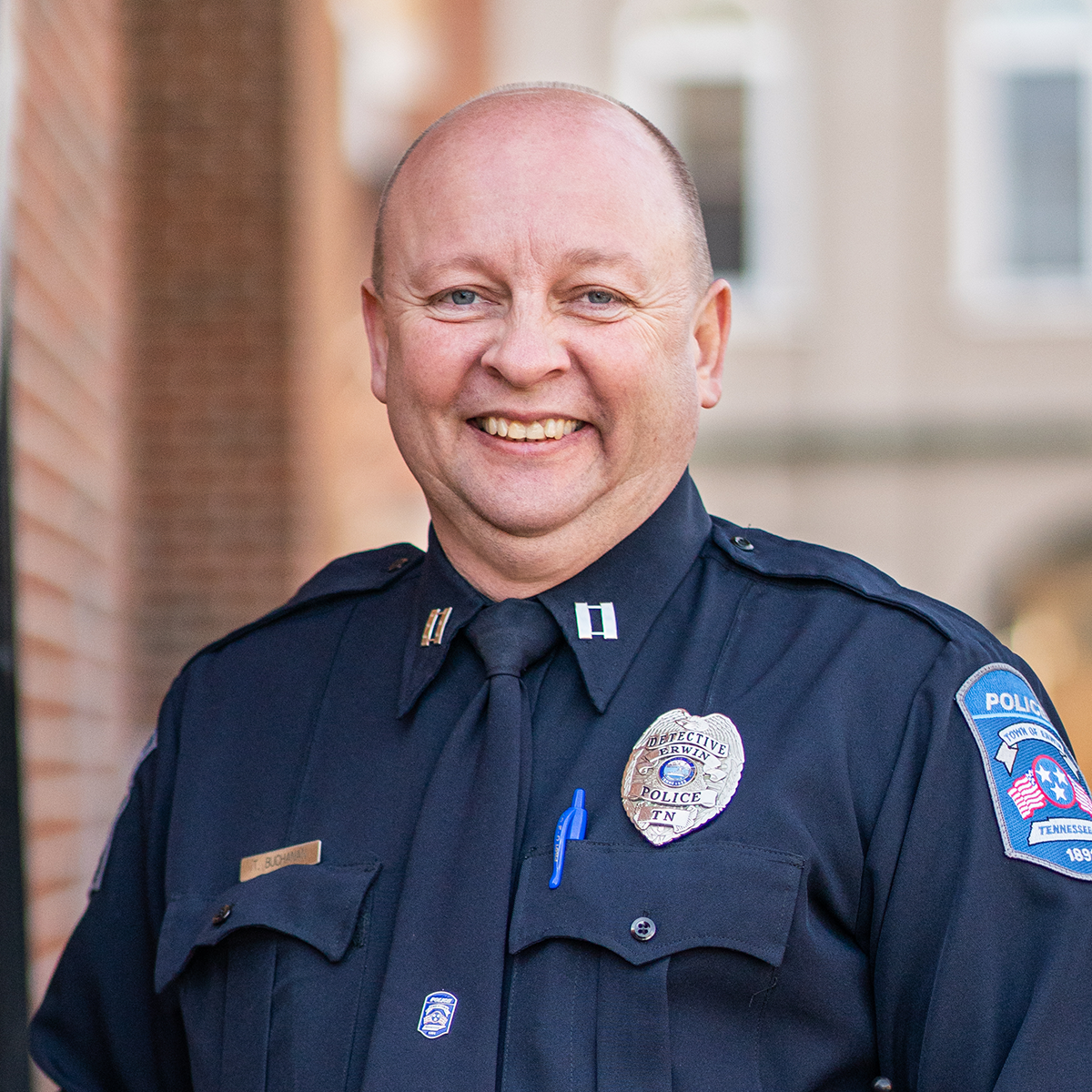Visit Vale Health Marketplace?
You are leaving balladhealth.org to visit Vale Health’s Wellness Marketplace.
Disclaimer: Ballad Health does not sponsor, endorse or recommend any product or resource listed in the marketplace.
Before I had the CT calcium scan, I had no idea I had any issues with my heart. My wife Lesa works at Unicoi County Hospital and was familiar with the calcium test. She’d been on me for a while to do it. It was only $49 but I kept putting it off and putting it off.

I’m a captain at Erwin Police Department, and we were talking about doing some physical training, see how good of shape we were in. Before we started that, I had planned to take four days off for Thanksgiving. So, I decided to take another day off and run out to Unicoi County Hospital and have the CT calcium scan done. It only took 15 minutes.
But then the girl giving me the test said, “Now the bad part. I have to give you the results. Here’s your score — 5,494.” It didn’t mean anything to me. I got out of there and gave my score to my wife. She was working at the front desk. She said, “Oh my goodness! This is terrible! Anything over 400 is considered bad and yours is 5,494!” Apparently, it meant I had a lot of calcium buildup in my arteries.
I had no idea. No symptoms, at least none that I knew of. I would say I felt a little tired at times. I’d sit down and go right to sleep. That’s the only thing I can think of. All the labs on my bloodwork always came back fine, including my cholesterol.
But I did have a family history. My mom and dad had heart disease. My dad died of a heart attack at 64. My mom had heart trouble too, but she was up in her 70s when she died.
After my wife told me what that score meant, I made an appointment with my primary care doctor right away and they referred me to a cardiologist at Johnson City Medical Center. She saw me two days later and said she’d only seen one other score that high, so more than likely I had some blockages.
“I had a lot of calcium buildup in my arteries. I had no idea. No symptoms, at least none that I knew of.”
The cardiologist ran some tests and said I was probably a good candidate for open-heart surgery. Three of my coronary arteries were 99% blocked. But they would see if they could clear the blockages by putting in stents. Luckily, they were able to — they called it a “rotor rooter” — and I was able to avoid open-heart surgery. At least for the moment.
A few weeks after the stents were put in I had this strange feeling in my chest like a balloon blowing up. I went back to see the cardiologist and they determined that I needed open-heart surgery. That was kind of scary, thinking about the surgery. But it went relatively well. I went in and had surgery on a Friday and was discharged on Monday. They had me up walking the halls six hours after surgery. And I did cardiac rehab afterwards. I returned to work about a month after the surgery. As far as I know, I’m fine now. I’d say it was a good experience. Everyone at the hospital treated me well. I didn’t have any complaints.
Going through that experience made me think about things more. I try to watch my diet and be more active. I work all the time but I always look forward to going into work. I love my job. But overall, my life’s pretty much back to normal now.
If you're at risk for heart disease or want to learn more about how to get a calcium scan like Tony, you can learn more about Ballad Health's calcium screening services here.